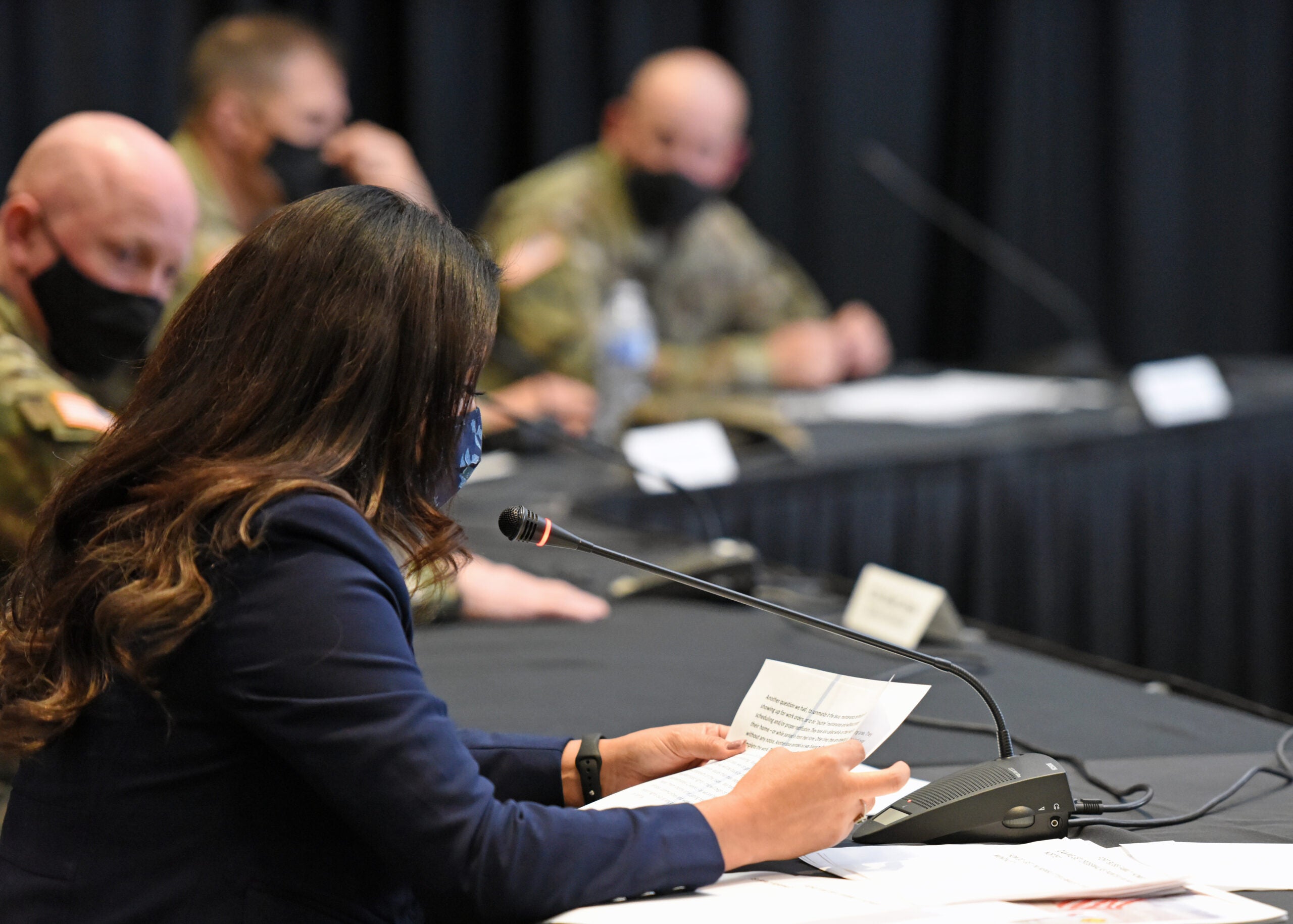A new Senate subcommittee report says that not even a criminal investigation stopped one of the military’s biggest privatized housing providers from screwing over military families.
The report from the Senate Permanent Subcommittee on Investigations reveals that while Balfour Beatty Communities was under investigation by the Department of Justice for a “scheme to defraud the U.S. military,” and even after the company pleaded guilty to one count of major fraud against the U.S., it continued fraudulent behavior.
“These ongoing management failures by Balfour are deeply concerning because they are entirely contrary to the pledges that Balfour publicly made in late 2019 about providing housing services at a level that military families deserve,” the Senate report concluded. “They also are troubling because there are striking similarities between key aspects of Balfour’s misconduct from 2013 to 2019 that led to its guilty plea and fine in December 2021 and the behavior that the subcommittee found Balfour exhibited in 2020 and 2021, when it was under active DOJ investigation.”
Subscribe to Task & Purpose Today. Get the latest in military news, entertainment, and gear in your inbox daily.

The report, released Tuesday morning, is the focus of a congressional hearing on the same day, in which lawmakers will hear testimony from service members, military spouses, housing advocates, and officials from Balfour Beatty Communities. The subcommittee’s inquiry was kicked off in August 2021 by Sen. Jon Ossoff (D-Georgia), chairman of the subcommittee, after he received “multiple housing complaints from residents” during a trip to Fort Gordon, Georgia, which houses Army Cyber Command.
As part of its inquiry, the subcommittee reviewed over 11,000 pages of records from Balfour Beatty, including work order data, internal memos, e-mails, and policies and procedures, along with internal complaints. Investigators also reviewed documentation from military families, including their correspondence with the company, medical records, and maintenance requests, and interviewed more than a dozen military families, the report said.
The new Senate report outlines a series of misconduct families said they dealt with even while Balfour Beatty was under investigation by the DOJ, and says there are still “significant gaps in compliance procedures.” The report also identifies one executive, Paula Cook, who is testifying before the subcommittee on Tuesday, as being found to have blatantly ignored problems at Fort Gordon after learning of them.
She told the subcommittee in an interview that “she knew that the Balfour facility manager who was in charge at Ft. Gordon … was not implementing repairs that he promised to make for residents,” the report says. And while she did not directly oversee that employee, “as a senior Balfour executive she failed to ensure that Balfour took steps to investigate or correct these issues.”
The report says that while Balfour Beatty co-president Richard Taylor “pledged to make the health and safety of residents Balfour’s ‘top priority’” in 2019, since then the company “has continued to fail to respond to environmental hazards such as mold and major leaks.”

The report also points to one instance two months before Balfour Beatty pleaded guilty to charges and agreed to pay $65 million in fines and restitutions, when the company left an Army sergeant’s family in a home with pervasive water leaks. The family at Fort Gordon, identified only as “Army Family #6” in the report, said they submitted a repair request to Balfour Beatty after noticing moldy water leaking from their shower and bubbles behind paint on the walls, which appeared to be caused by a water leak.
For three months after that initial request was made on Oct. 21, 2021, Balfour Beatty “ignored this family’s concerns,” the report said. The leak was still an issue as of January 2022, a month after Balfour Beatty pleaded guilty to the Department of Justice. According to the report, the issue wasn’t addressed until February 2022, four months after the soldier requested help.
Another family, identified as Army Family #8, had a similar experience when they reported that Balfour Beatty moved them into a home in November 2021 that had “extensive mold growth” in the ventilation system that was contributing to their daughters having respiratory symptoms and fevers. The subcommittee said in their report that a review of “Balfour’s work order history found no evidence that Balfour performed any repairs or cleaning” before moving the family into the home.
It took three months of asking for help before Balfour Beatty agreed to address the family’s concerns, the report said. The report also found “multiple instances” of Balfour Beatty mischaracterizing or omitting work history, which “could lead to Balfour receiving improper performance fees from taxpayer funds.”
“[T]he subcommittee has found that Balfour’s failures to accurately record military families’ repair requests did not end when it pled guilty to fraud in December 2021,” the report says.

Access to a home’s maintenance history is one of the key components of the Pentagon’s Tenant Bill of Rights which was put into place in 2021, and would allow a military family moving into a home to see if that home had been treated for mold in the past, for example.
In one instance, the report says Balfour Beatty identified a work order to address “leaking moldy water” as “plumbing” and “painting” issues. In another instance, an Army family said they were told by Balfour Beatty staff that there was mold growth in their ceiling, but their work order history contained “not a single mold work order.”
“As a result, once Army Family #4 moved out of this home in October 2020, the military family that next moved into this home could not see from Balfour’s internal maintenance history report that it had a history of mold,” the report says.
Balfour Beatty is just one of several companies overseeing tens of thousands of homes for service members and their families across military installations. The company is “the nation’s largest provider of military family housing,” according to its website, and oversees thousands of Army, Air Force, and Navy homes across 55 installations.
The Military Housing Privatization Initiative dates back to 1996 when the Pentagon signed decades-long contracts for privatized housing, in an effort to provide service members with “quality, affordable housing.” While some have said it was initially an improvement on military housing, there have since been no shortage of serious issues coming from the privatized housing companies, including pervasive mold, rodent infestations, water leaks, and asbestos.

Those same contracts have been criticized as one of the primary reasons the Pentagon hasn’t been able to take significant action against the companies.
Issues with Balfour Beatty are nothing new. In 2019, the Air Force discovered that the company was altering maintenance records at Tinker Air Force Base, Oklahoma, in order to continue receiving performance bonuses from the Pentagon. Military families at Fort Bliss, Lackland Air Force Base, and Sheppard Air Force Base in Texas have sued Balfour Beatty alleging “squalid conditions.”
Sen. Jim Inhofe (R-Okla.) addressed concerns with the company in 2019, saying even then that Balfour Beatty had not made good on its promises to improve. “Seven months ago,” Inhofe said in October 2019, “Balfour Beatty … testified in front of the Senate Armed Services Committee that they would move quickly to address systemic issues. They have not.”
The issues outlined in the latest report and those raised in recent years are at odds with not only the expectations the Pentagon states it has for these companies in delivering “safe, quality housing that’s well maintained,” but also with the expectations Balfour Beatty seems to have for itself.
On the Balfour Beatty website, the company describes itself as being on “a singular mission” to deliver “the quality communities people are proud to call home.” The website’s “Get to Know Us” page says “people come first in everything we do,” and everyone “deserves to be treated with dignity, respect and fairness.”
“Delivering exceptional living experience doesn’t come easily,” the website says. No, it appears it does not.
The latest on Task & Purpose
Want to write for Task & Purpose? Click here. Or check out the latest stories on our homepage.
